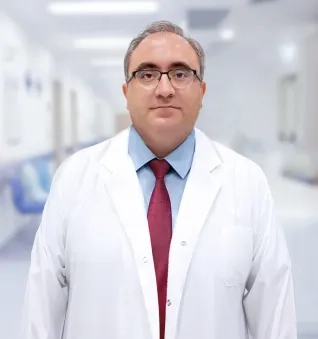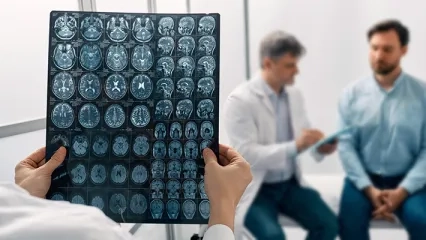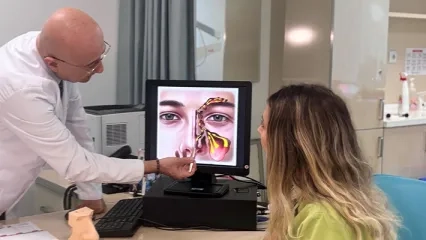Alo Yeditepe
Alo Yeditepe
Nephrology
It is a science of Internal Diseases that deals with the health and diseases of the kidneys. May also be referred to as kidney diseases specialization on internal diseases specialization. Specialists of the Nephrology Department specialize in the investigation of the causes of diseases such as structural and functional disorders of the urinary system, hereditary kidney diseases, fluid-electrolyte and acid-base balance disorders, hypertension, determination of treatment options, and protection and monitoring of kidney functions. At the same time, systemic diseases (such as diabetes mellitus, hypertension, and rheumatological diseases), acute, rapidly developing clinical conditions (such as fluid loss, heart failure, sepsis), constantly used drugs (such as chemotherapy, anti-rheumatic drugs, cortisone) to evaluate the negative effects they may have on the kidneys and to produce solutions and to plan and perform kidney functions (hemodialysis, peritoneal dialysis, kidney transplantation) and lifelong follow-up of these patients is carried out under the responsibility of Nephrology specialists.
What Services are Offered?
In our hospitals, Nephrology Department, patient care and follow-up services are provided in inpatient services, and consultancy services are provided to branches in addition to outpatient treatment services within the Department of Internal Medicine. Within the body of the Nephrology Department, outpatient services are provided for which acquired and hereditary kidney diseases (polycystic kidney disease, Familial Mediterranean fever, amyloidosis, stone disease), hypertension and hypertensive kidney diseases, infective diseases of the kidney and urinary system, and diabetes-related kidney diseases are evaluated. Treatment services such as hemodialysis, hemofiltration, and hemodiafiltration are provided in addition to supportive treatment for patients who develop fluid-electrolyte imbalance and renal failure in inpatient services, intensive care, and dialysis units. However, with our Organ Transplantation unit, kidney transplantation is performed for patients with end-stage renal disease, and post-transplant follow-up and treatment services are provided.
Outpatient Services
In the outpatient clinic, preventive medicine applications, supportive treatments, and follow-up services for end-stage renal patients are provided in cases where the risk of kidney diseases such as diagnosis and treatment of renal diseases, diabetes, or hypertension increases. In addition, patients diagnosed with end-stage renal disease are evaluated for renal transplantation.
Intensive Care and Inpatient Service
In addition to supportive treatment, hemodialysis, hemofiltration, hemodiafiltration, and continuous venovenous hemofiltration are applied to patients who need supportive treatment, especially those who develop acute renal failure, which constitutes the high-risk group of intensive care patients. While hemoperfusion and plasmapheresis treatments can also be used, when necessary, in the clinic, peritoneal dialysis service is also provided.
Dialysis Treatment
Dialysis treatment can be applied acutely or chronically. In acute dialysis, hemodialysis, peritoneal dialysis, or slow, continuous methods can be performed. Hemodialysis or peritoneal dialysis may be used in the treatment of chronic dialysis. Chronic hemodialysis treatment is administered 2-3 times a week for 4-6 hours depending on the remaining kidney functions and the amount of protein received by the diet.
The most common chronic peritoneal dialysis method is SAPD. Continuous Outpatient Peritoneal Dialysis is a simple method in which the dialysate filled into the peritoneal cavity is replaced with a new one after a few hours of stabilization. Since the procedure, which is usually performed four times a day, is performed by the patient and outside the hospital, the success of SAPD treatment depends on the adequacy of the infrastructure.
”
See Also
- Common Misconceptions About Kidney Transplantation
- Kidney Diseases and Treatment Methods
- What is Ferritin? Low Ferritin and High Ferritin
- What is Hemoglobin (HGB)? Low and High HGB
- 10 Questions About Kidney Transplantation
- How Should the Daily Salt Consumption Amount Be?
- Sweating May Be a Sign of Illness
- Chronic Kidney Disease and Treatment Methods
- Things Wondered About Kidney Transplantation and Organ Donation
- If You Consume More Than 5 grams of Salt...
- The Frequency of Hepatitis Seen in Dialysis Patients Is Decreasing
- Pay Attention When Consuming These Nutrients!
- 12-Year-Old Tuğba Nur Survived with Transplant
- One in 7 Pregnant Women Has Diabetes
- Excess Protein Does Not Increase Muscle Mass, and It Impairs the Kidneys
- AV FISTULA Should Be Done At The Right Time For Hemodialysis Patients
- Pay Attention to Kidneys in Pregnancy!
- Recommendations to Strengthen the Immune System
- Kidney Failure Caused by Ear Obstruction
- One Out of Every Seven People Has Kidney Disease
- How Should Kidney Patients Be Protected From COVID-19 Coronavirus?
- Improper Nutrition Invites Kidney Failure
- Chronic Renal Failure and Treatment
- Important Warning from the Expert: “Not Adding Salt to Meals Alone Is Not Enough”
- The Giant Stones In The Biliary Tract Of 71-Year-Old Patient Were Removed Without Surgery
- 8 People a Day Lose Their Lives While Waiting for Organ Transplantation in Our Country
- Attention to Drug Use After Kidney Transplantation!
- The Process That Leads to Kidney Failure in Young People Progresses Sneakily
- Are Your Kidneys Really Healthy?
- Being Thirsty in the Heat Tires the Kidneys!
- Tissue Harmony Is Also Important for Success in Kidney Transplant
- Phytotherapy and Immune System
- Hereditary Kidney Diseases Are Underrecognized!
Alo Yeditepe










